17th October 2023
Here at Solaris Health, we’re fascinated by attitudes to health that shape behaviours, particularly in rare conditions and unmet medical needs.
We joined our sister company, Bray Leino, to commission a nationwide healthcare study of over 1,000 respondents across both consumer and core patient groups – comprising those in primary care with an ongoing medical condition and those with a rare disease or unmet medical need. This exclusive quantitative and qualitative research study – Healthcare Now – unlocks invaluable insights which can guide us in understanding people’s attitudes and behaviours around healthcare and wellbeing, and which will help inform our approach to healthcare marketing.
As we explored in our second piece, ‘Humble health ambitions, where normality should be the goal’, the need to understand the modest ambition to be more proactive towards our health is universal. In an ever-changing world where gender is a topical – and often contentious – point of discussion, it is interesting to see how some differences between males and females are heightened when it comes to attitudes and behaviours around healthcare. Our survey findings were quite surprising in that they highlighted distinct differences in the attitudes expressed by men and women. These differences involve many areas of healthcare, including how they manage their mental health, attitudes towards taking medication, and motivations for staying physically healthy.
Let’s explore some of these fascinating insights in more detail.
Conscious vs instinctive management of mental health
Mental health affects how we think, feel, act, make choices, and relate to others. Mental health not only relates to the absence of a mental disorder, it refers to being mentally healthy which is essential to our overall health and quality of life. Self-care and taking the time to do things for your wellbeing can help you live well and improve both your physical and mental health. Interestingly, there seem to be gender differences in attitude here. In terms of general health and wellbeing, our survey showed that compared to women, men generally take a less active interest in activities that can contribute to wellbeing.
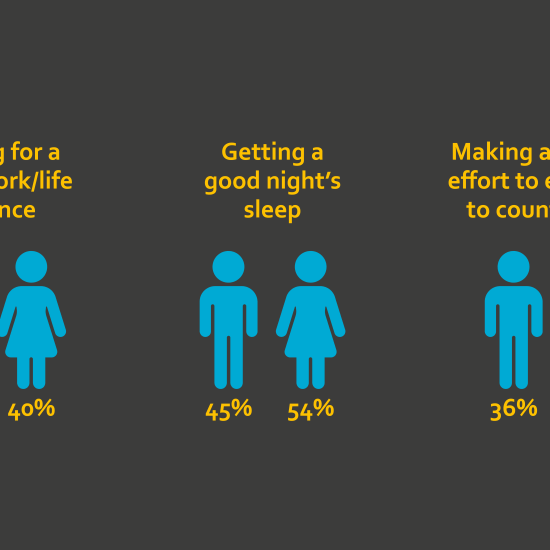
Our survey tells us that men are more inclined to manage their mental health ‘instinctively’ by doing things they enjoy and making time for themselves. But they don’t feel they are making a conscious effort; they feel they are simply doing things they like to do, which make them feel good, whereas women still seem to put more emphasis on childcare responsibilities and cite work as another factor that takes up their time and mental energy.
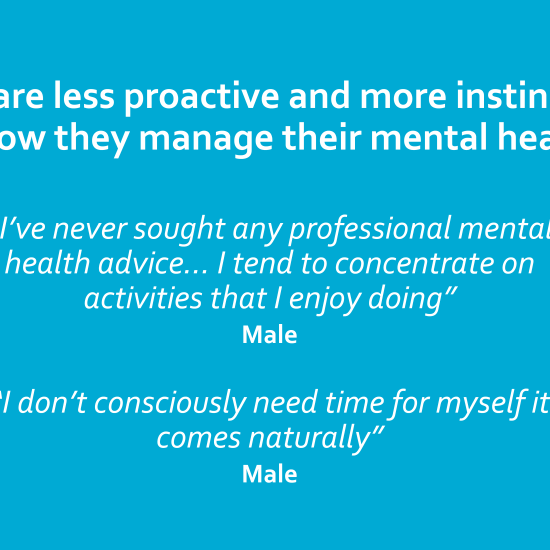
Taking medication for mental health
Mental health is just as important as physical health, and taking medication to help cope should be seen in the same light as taking medicines or vitamins for physical health. Different people may have different ways of deciding whether they need medication or not, and our study showed that men and women look at mental health from different perspectives. More men than women feel it’s up to them to look after this aspect of their lives and to not look to health services for support, whereas around one in five women have sought help and been diagnosed with a ‘common’ mental health problem such as depression or anxiety. This trend does vary across age groups, and according to the findings of our survey:
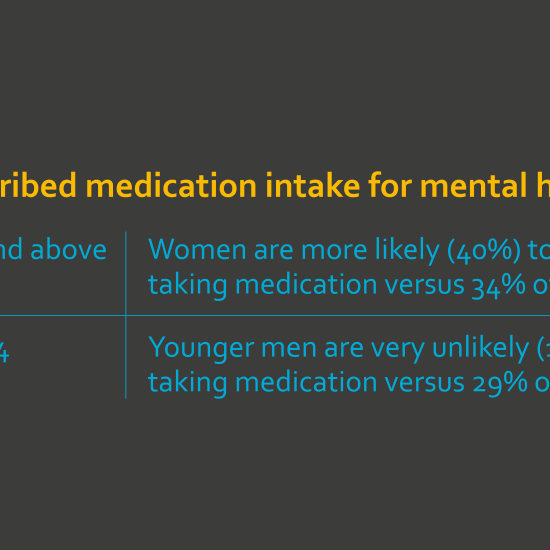
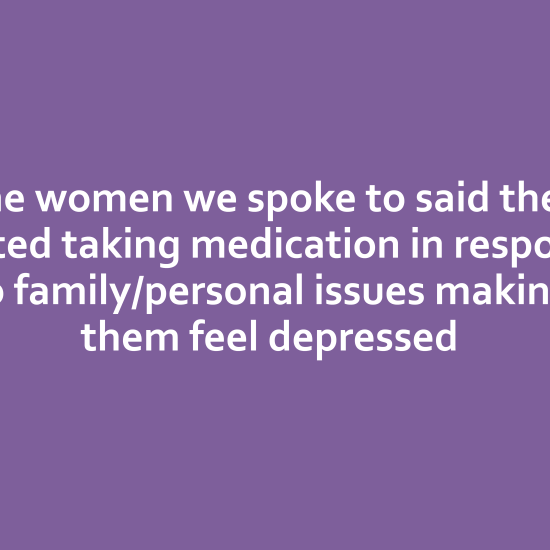
However, other data show that three times as many men as women die by suicide.1 Men aged between 50 and 54 have the highest suicide rates in the UK,1 perhaps demonstrating that younger men could certainly benefit from seeking help earlier, rather than feeling they can manage on their own and not seeking help and support.
Motivations and barriers to managing physical health
Managing physical health is all about being motivated to improve our health, mood, and physical appearance. But often our busy schedules, or lack of energy or social support, mean that people often neglect their physical health. So, understanding the common barriers to physical activity and creating strategies to overcome them may help make physical activity part of daily life. Our survey tells us that women are more motivated than men (51 vs 45%) to manage their physical health but struggle to find the time and mental energy.
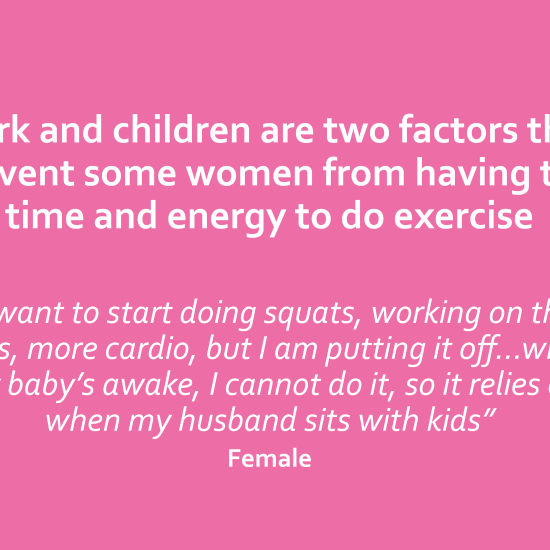
Approach to social media
Today, social media has become a lifeline for some, helping people to connect with new friends, keep in touch with friends and family, stay entertained and informed, and much more. Though we can’t imagine our life without social media, it has its pitfalls too. Using social media sometimes creates an invisible pressure to always put yourself out there in a good way and, somehow, that can make others feel bad about themselves or their situation in life. It’s interesting to see that men are more mindful of the dangers of social media and are slightly more likely than women to stay away from this influence to look after their mental health (18 vs 13%). Men questioned said that social media made them feel paranoid or negative about their own lives.
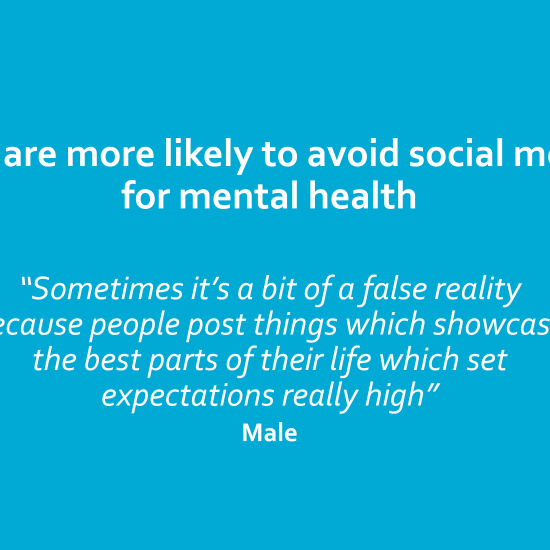
Our survey identified distinct differences in perspective between the genders on the topic of health, but where all those in the rare disease or unmet medical needs group agree is on the continual thirst for more knowledge about their condition. For the industry and patient organisations alike, this indicates the need to continue and potentially expand the flow of information to patients, and to maintain this with regular updates on scientific and community news. Consideration should be given to providing them with additional explanatory materials for their friends/family/support network, as these could also be valuable.
For more information on how we can help you consider different perspectives on the topic of health, contact Claire Dobbs, Solaris Health: claire.dobbs@solarishealth.com.
Reference:
1. Samaritans. Latest suicide data. Available at: https://www.samaritans.org/about-samaritans/research-policy/suicide-facts-and-figures/latest-suicide-data/. Accessed August 2023.


